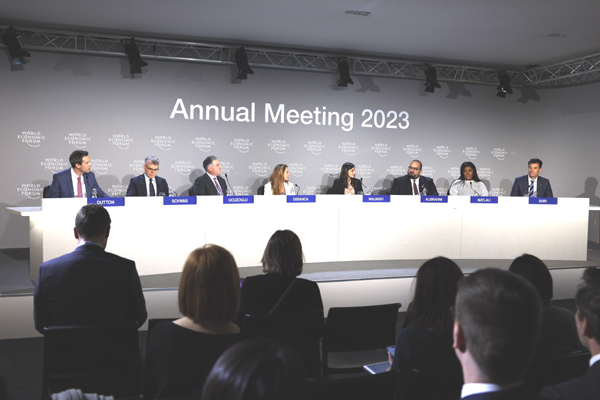Saudi Arabia’s Ministry of Economy and Planning (MEP) in collaboration with UpLink today (January 19) launched an innovation challenge designed to crowdsource transformative solutions to enhance food security in countries impacted by low rainfall, drought, and desertification.
MEP and UpLink, the World Economic Forum’s (WEF) open innovation platform, made the announcement at the Forums’ 2023 Annual Meeting in Davos as part of Saudi Arabia’s efforts to develop innovative solutions to the world’s most critical challenges, through collaboration and cooperation.
The Food Ecosystems and Arid Climates Challenge is a global call for food entrepreneurs, start-ups, social ventures, and small-medium sized enterprises to submit solutions that incorporate low or high technologies.
The winning cohort will be eligible to access CHF100,000 to scale and implement their venture in regions with arid climates, while enhancing their visibility and access to networking opportunities. This is the first of two challenges focused on food systems, with a second to be launched later in 2023 on climate-smart agriculture.
Announcing the challenge, Faisal F. Alibrahim, Minister of Economy and Planning for KSA, said: "Our world faces a wide range of major socioeconomic challenges, and food security is at the top of the list."
Saudi Arabia is participating in the Annual Meeting 2023 (AM23) of the WEF in Davos until January 20 to bridge global divides and facilitate near-term stability while driving multilateral reform and long-term transformation.
"Saudi Arabia is fully committed to being a major innovation accelerator, and dedicating resources to empower and support entrepreneurs who are determined to tackle the challenge of food security, in this case in regions with arid climates," he stated.
Around 828 million people today are hungry, while 2.3 billion are food insecure. Furthermore, 3.1 billion people globally cannot afford a healthy diet and it is estimated that 700 million will be displaced by drought by 2030, he added.
The Saudi minister said the challenge was aimed at strengthening food security and improving the supply of healthy and nutritious foods in arid regions by supporting solutions with a strong socioeconomic, environmental and educational impact to strengthen local food value chains.
With the support of government-led initiatives such as the Food Ecosystems and Arid Climates Challenge, it brings us closer to meeting Sustainable Development Goal (SDG) 2, Zero Hunger by 2030, stated Alibrahim.
To drive a whole-of-government approach that achieves the 17 SDGs, MEP established and leads the Sustainable Development Steering Committee, which coordinates government efforts across the 2030 SDG Agenda.
Since the establishment of the Sustainable Development Steering Committee (SDSC), a governance structure has been operationalized and chaired by Alibrahim and includes 20 senior stakeholders from various government entities to oversee Saudi Arabia's SDG Agenda.































